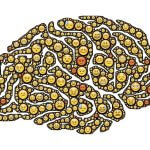I read in an article that Spelt an ancient grain provides more fiber than whole wheat bread and it is wonderfully nutritious. So what role does carbohydrates play in promoting health? First, let us move up the ladder from the basics.
Carbohydrates supply energy to the body to perform physical activity and for proper functioning of organs. Carbohydrates can be grouped into simple and complex carbohydrates. The basic building block of every carbohydrate is sugar. It is a simple union of carbon, hydrogen and oxygen.
Whole grains, vegetables, fruits and beans are the best sources of carbohydrates. They contain vitamins, minerals, fiber and phytonutrients. It would be wise to include these in your daily diet. Refined carbohydrates are obtained from refined grains, white bread, white rice, pastries, sugared soda and other highly processed foods. You would be helping yourself a lot if you limit if not avoid including refined carbohydrates in your diet.
The digestive system converts the digestible carbohydrates into glucose and uses it as energy but the fiber is not digested. Both the soluble and insoluble fiber does not nourish the body but they promote health. Always include moderate amounts of the right kind of carbohydrates to supply energy to the body. The World Health Organization recommends 55-75% of dietary energy for adults, should be contributed by carbohydrates and simple carbohydrates should produce only 10% of energy.
To clear your doubts about the sources of simple and complex carbohydrates here is a list.
Sources of simple carbohydrates – fruit juice, table sugar, honey, soft drinks and other sweets
Complex carbohydrate sources include starch, bread, cereal, potatoes, pasta and dried peas and beans.
Sources of fiber rich foods include bran, whole grain foods, raw vegetables and fruits, legumes, nuts, seeds and popcorn.
The functions of carbohydrates are very important to the body and they are essential for optimal health. The three potential side effects of carbohydrate deficiency are vitamin and mineral deficiency, fiber deficiency and low energy levels.
Now let us see about low carb diet and no carb diet. Low carbohydrate diet is generally applied to foods that restrict carbohydrates to 20% of calorie intake. Low carbohydrate diet is used to treat and prevent cardiovascular diseases, metabolic syndrome, high blood pressure, diabetes, epilepsy, chronic fatigue syndrome and poly cystic ovary syndrome.
Researchers have found that a low carb and high protein diet may reduce the risk of cancer and the growth of tumor which is already present. A study has confirmed that intermittent low carb diet was superior to standard daily calorie restricted diet for reducing weight and lowering blood levels of insulin, a cancer promoting hormone.
There are many controversies surrounding a low carbohydrate diet. If you are planning to go on a diet it would be wise to consult your doctor who can guide you properly. Regarding the no carb diet many health professionals say it is a complete no-no to go on this type of diet.
No carbohydrate diet is described as human carnivorism. It excludes the inclusion of all carbohydrates and suggests fat as the main source of energy along with sufficient protein. The no carb diet is quite dangerous as it causes reduction in testosterone, increases cortisol levels which are associated with fat gain in the abdominal and hip region, depression and weakness of immune system and rebound weight gain.
The USDA recommends that adult should consume six cups of carbohydrates each day and it should be obtained from sources such as whole grains, fruits, vegetables and legumes. A balanced diet from the three macro nutrients fat, protein and carbohydrate is essential for the general well-being of the human race.
Have a great carbohydrate day!!
Take care,
Swarnam
Photos courtesy of www.FreeDigitalPhotos.net
Photos of pasta and Muesli by Michelle Meilclejohn
photo of starchy foods courtesy of Wikipedia
Take care,
Swarnam
Swarnam














